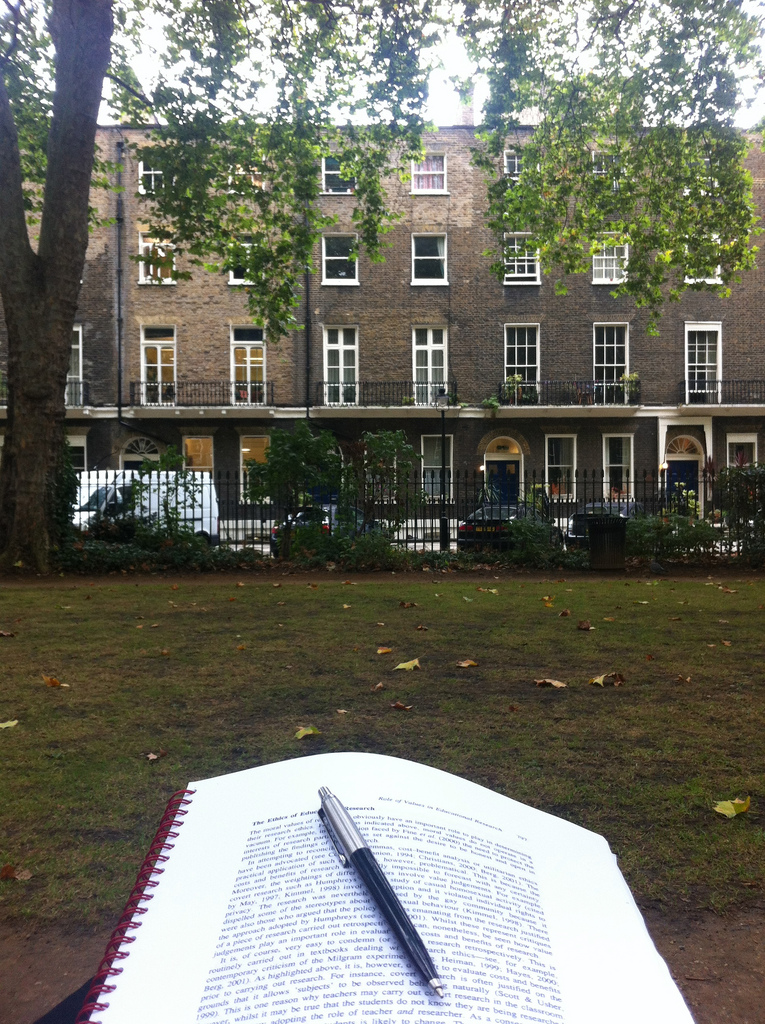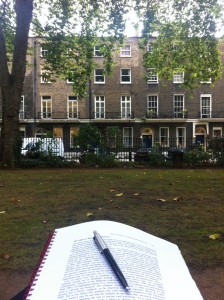I have only just begun this PhD program at the Institute of Education, but I thought I would make my whole doctoral process as transparent as possible. This will include things that embarrass me, perhaps embarrass my affiliated institution, and perhaps might be a bit embarrassing for higher education in general. But as I sift through ontology and epistemology discussions and position myself in a cognitive ‘space’, it seems natural and reflexive enough to comment on my adventures so far. My adventures, mind you, as a lifelong aloof type (re) entering the material world of learning.
By way of background, I have spent a lifetime going (and living in) places that would be any measure be deemed exotic (except Ohio perhaps, but then again that is a subjective statement relative to my experience there). I went there nominally for adventure, nominally for work, for experience, etc. but a great part of me loved, was truly intoxicated, by the thought of being an aloof observer of all things foreign (even though I was technically the foreign element involved). I could be the fly on the wall for social realities that we all participate in more or less unconsciously. Rites of passage, etiquette, milestones, etc. were all mine to observe, record, and reflect on. But I was never asked to participate. Indeed, I never wanted to. I watched and listened and looked and recorded whenever the mood struck me.
Hence, the internet in general was a perfect medium for me. I could sit in far off places and interact with all kinds of people and never commit to a physical manifestation of that interaction. Korea (for most of my adult life) was my home, my material reality. The internet was my cognitive/intellectual/social one for the most part. I translated that to education, to two Masters in two distinct subjects with two sets of interesting learners/wanderers. I haven’t set foot in a material classroom as a student since 1997 (I think). So the whole process of physically applying to various PhD programs (several of which requiring paper applications), physically relocating to London for this program, physically transporting myself daily to the material university, and physically thumbing my way through paper copies of academic texts seemed, at first, anachronistic. But this re-acclimation to material society, to navigating a physical world, has proven fascinating and fatiguing. Not that I didn’t interact in material Seoul; it is just that I wasn’t expected to. Interaction was my choice, not my responsibility. London, in that respect, has proven wonderfully taxing.
One manifestation of that is my subtle, intrinsic reminder that the world is not designed for left-handers. I am left-handed and while I don’t pay much attention to exaggerated claims of left-handed being this or that, I do recognize when the world isn’t inherently designed for me. From computer workstations to desks to notebooks (my scourge) to pens with cheap ink, the world is designed for the ‘other’, the ‘not you’. These are minor inconveniences that aggregate to an annoyance. A keyboard is borderline neutral and hence elearning never thwarted my efforts to translate thought to text. The technology, if one has access to it, levels these inconveniences designed into material society.
The material university is not always designed this way. It recognizes physical space and physical space is configured to the needs of the many. It designs away from technology by not providing ample electricity sources (or any at all), by the design of a table, a chair, a projector. It is designed, unintentionally, to thwart this leveling of technology (my left-handedness). I can type much faster than I can write, but it is more socially acceptable when working in groups to write rather than type. So there is a tradeoff there. Investing in the social dynamic (a facet of constructivism) at the expanse of nominal efficiency (speed, accuracy of notes). I struggle to write in most notebooks and have many where I work from the back to the front to avoid that ridiculous middle binding. I tend to use yellow legal pads for this reason (and because they are bright yellow, as if everything that you wrote in them were intrinsically highlighted and important). I want to type, but I struggle typing with an iPad and a laptop seems too unwieldy for the social interaction, almost interruptive. So, we sacrifice efficiency for cohesion.
So, while these observations might be seen as trite (and they are), they do aggregate towards a material context, a material learning experience. And, perhaps more importantly, they are at odds with my experience to date. Which is welcomed. Nonetheless they represent adjustments, alterations, evolutions. And there will be many more of these to record and report. Ranging from opening a bank account in the UK, to the Tube, and on and on.


